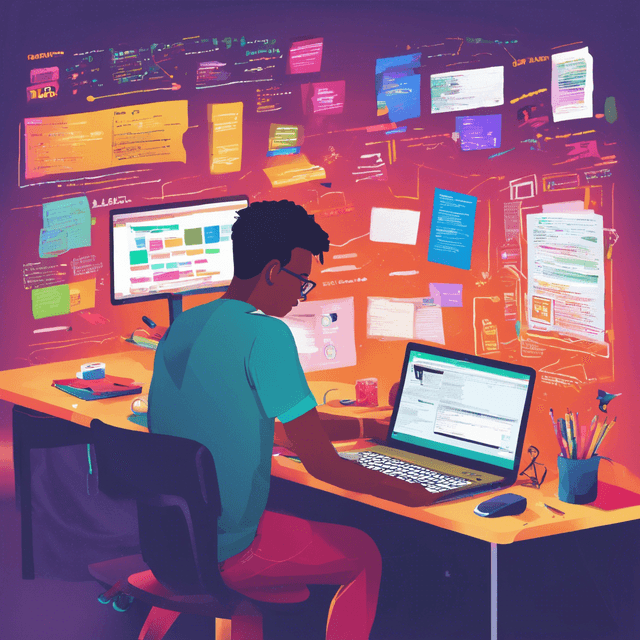- About
- Services
- Portfolio
- Work
- Statistics
- Blog
- Contact
- About
- Services
- Portfolio
- Work
- Statistics
- Blog
- Contact
How a Beginner Can Start Their Web Development Career

Web development is an exciting and rapidly evolving field, offering abundant opportunities for beginners eager to break into the tech industry. If you’re looking to jumpstart your career in web development, follow these essential steps to set yourself on the right path.
1. Understand the Basics of Web Development
Before diving in, familiarize yourself with the core areas of web development: front-end, back-end, and full-stack.
- Front-end development focuses on the part of the website users interact with. It involves HTML, CSS, and JavaScript.
- Back-end development deals with the server-side, working with databases, server logic, and application programming interfaces (APIs). Common languages include Python, Ruby, and PHP.
- Full-stack development combines both front-end and back-end skills, allowing you to manage all aspects of a web application.
2. Learn HTML, CSS, and JavaScript
Start with the fundamentals: HTML (HyperText Markup Language), CSS (Cascading Style Sheets), and JavaScript. These three technologies are the bedrock of web development. Utilize online platforms like Codecademy, freeCodeCamp, or MDN Web Docs for interactive learning.
3. Build Projects
Hands-on practice is crucial. Start by creating simple projects like personal portfolios or small websites. As you grow more confident, tackle more complex challenges, such as developing a blog or an e-commerce site. These projects will not only enhance your skills but also serve as valuable portfolio pieces.
4. Explore Frameworks and Libraries
Once you're comfortable with the basics, explore frameworks and libraries to streamline your development process. For front-end, popular frameworks include React, Vue.js, and Angular. For back-end, consider Express.js for Node.js, Django for Python, or Laravel for PHP.
5. Version Control with Git
Learn how to use Git for version control. Git allows you to track changes, collaborate with others, and revert to previous versions when necessary. Platforms like GitHub or GitLab are excellent for hosting your projects and collaborating with other developers.
6. Join Online Communities
Engage with fellow learners and experienced developers through online communities like Stack Overflow, GitHub, and Reddit. These platforms offer a wealth of resources, advice, and support, making them invaluable for your growth.
7. Build Your Portfolio
Your portfolio is essential for showcasing your skills to potential employers. Include a variety of projects, highlighting your best work and demonstrating your range of abilities. Be sure to include links to your GitHub repositories and any live demos of your projects.
8. Keep Learning
Web development is a dynamic field that constantly evolves. Stay updated on the latest technologies, trends, and best practices by following blogs, taking online courses, and attending webinars or local meetups.
9. Apply for Entry-Level Positions
Once you feel confident in your skills, start applying for entry-level web developer positions or internships. Tailor your resume and cover letter for each job, emphasizing your projects and relevant skills.

Conclusion
Starting a career in web development may seem daunting, but with determination, patience, and continuous learning, you can successfully navigate this vibrant field. Embrace challenges, seek help when needed, and remember that every expert was once a beginner. Happy coding!
